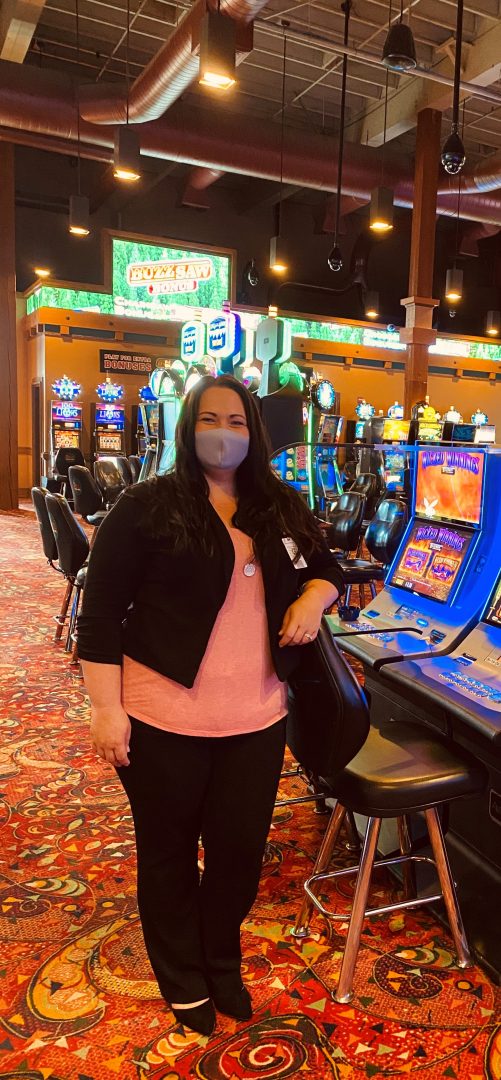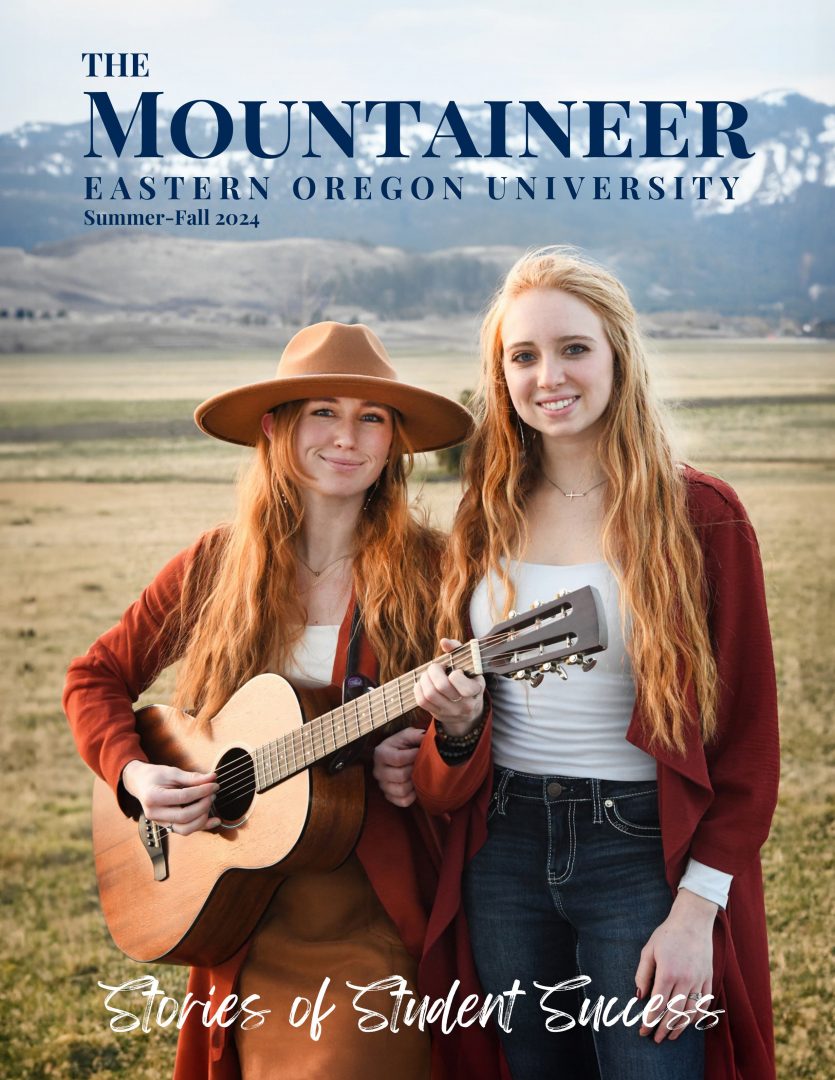Betting on success
By Katy Nesbitt

For Margaret Simpson, ’16, a Coquille Indian tribal member, academia is like basketwork—full of self-discovery.
The general manager of the Mill Casino in Coos Bay, Simpson earned three degrees while working full-time, weaving her education into her jobs and her culture.
“Higher education, for me, was more about a journey,” Simpson said. “When I was at EOU I took a lot of sociology, anthropology and political science courses that have helped me understand intergovernmental workings and opportunities to leverage tribal sovereignty.”
A 2016 EOU graduate, the former hair stylist started her college career at Southwestern Oregon Community College.
Simpson said, “I went to cosmetology school and owned a salon, but then I decided I wanted to make a greater impact on my tribe and my people.”
Simpson attended community college while serving as the executive secretary for the Health and Human Services Director at the Coquille tribal health center. Based on her aspirations, one of her career counselors recommended she study public administration at EOU.
Attending classes online, Simpson graduated with a degree in Interdisciplinary Studies, a minor in Anthropology/Sociology with a concentration in Public Administration—a good foundation for the leadership roles she’s taken in her career.
“Understanding the way the legislature works and its processes, being able to interpret different bills and legislation and the dynamics of politics, whether it be state or federal government, was helpful,” Simpson said.
While she stayed in her ancestral land to attend college, Simpson said she still had the advantage of being exposed to a wide diversity of classmates and a wider world.
“In every area I explored there has been a certain naivety about Native Americans,” Simpson said.
Interaction with her classmates helped her understand conceptions and misconceptions.
“People would be inquiring, sometimes respectfully, sometimes not, yet in every difficulty lies opportunity,” Simpson said.
Fielding inquiries into her culture gave Simpson the opportunity to help her classmates understand Native Americans and their history. It also strengthened her ability to relate to her peers and have fruitful discourse.
A year-long, accredited coach training further honed her interpersonal skills that Simpson said are difficult to learn in traditional academia. Through the iPEC program she said she improved her ability to work with people who struggle, whether at work or personally, without “owning” the employee’s burden.
Simpson said, “I go into every situation knowing that even if I am a teacher, I am a learner as well.”
Meanwhile, her career was advancing. About halfway through her studies at EOU, Simpson became Executive Assistant to the General Manager at The Mill Casino in North Bend, Oregon. About a year into that position she began developing a tribal member employment program.

“The project was a natural fit,” Simpson said. “I was passionate about the social and economic status of Native Americans and particularly my own people.”
Her task was difficult. Even though the casino had been open for 20 years, few tribal members worked there and there was a lack of a tribal presence in executive management.
“Back when tribal gaming started, big corporations ran the casinos,” Simpson said.
But the purpose of tribal gaming was also to provide tribal members with employment opportunities to achieve individual self-sufficiency and Simpson said that was not a focus at The Mill Casino.
“It took tribes a while to gain competencies. A casino is different from running a normal business,” Simpson said.
The program didn’t seek to just increase tribal member employment, but to provide advancement opportunities within the organization; an undertaking Simpson said took several years.
Simpson said, “We wanted them to learn essential skills to advance—that’s at the core of achieving a higher standard of living.”
Within the first two years, Simpson said, salaries doubled and wages were funneled back to tribal members’ households.
In 2020, while earning her master’s degree from the University of Nevada-Las Vegas, Simpson was promoted to general manager. She wasn’t just juggling academia and career, an unprecedented pandemic was sweeping the globe.
“The impact of the pandemic was devastating, we had to close the casino which had harmful effects on our tribe, community, employees and revenues,” Simpson said.
The tribe responded quickly to new restrictions and was the last casino in Oregon to close and the first to reopen.
“When we saw the pandemic coming we quickly came up with a survival plan and we’ve done well,” Simpson said.
A lifelong learner, Simpson said she plans on pursuing a doctorate, but her goal is to apply her education to help her people.
“For me it’s all about having the greatest impact on my nation, or even another tribal nation, but right now I’m really grateful for the growth opportunities I have been provided,” Simpson said. “I will continue to embrace opportunities to advance my people and tribal gaming.”
